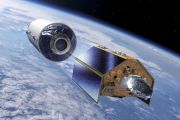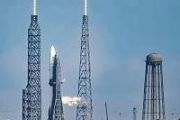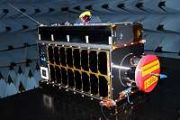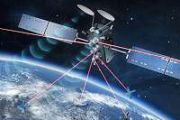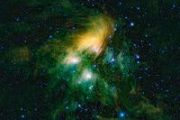
Copernical Team
Dhruva and Kineis to offer satellite-based services
 India-based full-stack space-engineering solutions provider Dhruva Space and France-based satellite operator and global connectivity provider Kineis have inked a Memorandum of Agreement (MoA), marking a partnership where both companies will collaborate to establish space and ground infrastructure to scale the diversity and impact of satellite-based solutions.
With 9 satellites in orbit, Ki
India-based full-stack space-engineering solutions provider Dhruva Space and France-based satellite operator and global connectivity provider Kineis have inked a Memorandum of Agreement (MoA), marking a partnership where both companies will collaborate to establish space and ground infrastructure to scale the diversity and impact of satellite-based solutions.
With 9 satellites in orbit, Ki Kongsberg NanoAvionics to build more 5G Narrowband-IoT satellites for LEO constellation
 Washington DC (SPX) Mar 24, 2023
Smallsat mission integrator and bus manufacturer Kongsberg NanoAvionics (NanoAvionics) has received an order for three further satellites from 5G telecoms operator OQ Technology. They will be added to OQ Technology's existing constellation, turning the company into the largest 5G NB-IoT (narrowband Internet of things) satellite operator in the world.
It is
Washington DC (SPX) Mar 24, 2023
Smallsat mission integrator and bus manufacturer Kongsberg NanoAvionics (NanoAvionics) has received an order for three further satellites from 5G telecoms operator OQ Technology. They will be added to OQ Technology's existing constellation, turning the company into the largest 5G NB-IoT (narrowband Internet of things) satellite operator in the world.
It is Lynk selects Dawn Aerospace propulsion following an extensive industry trade study
 Dawn Aerospace, a leading space transportation company, reports that it has been selected to provide satellite propulsion systems for Lynk, the world's leading satellite-direct-to-standard-phone telecoms company. The partnership will enable Lynk to enhance deployment, life extension, collision avoidance, and de-orbit capabilities as its satellite constellation of 'cell towers in space' grows.
Dawn Aerospace, a leading space transportation company, reports that it has been selected to provide satellite propulsion systems for Lynk, the world's leading satellite-direct-to-standard-phone telecoms company. The partnership will enable Lynk to enhance deployment, life extension, collision avoidance, and de-orbit capabilities as its satellite constellation of 'cell towers in space' grows. Sidus Space to power maritime solutions with AIS integration in LizzieSat
 Sidus Space, Inc. (NASDAQ:SIDU), a Space-as-a-Service satellite company focused on mission-critical hardware manufacturing; multi-disciplinary engineering services; satellite design, production, launch planning, mission operations; and in-orbit support, announced an agreement with SatLab to implement its second-generation automated identification system (AIS) technology into the Company's Lizzie
Sidus Space, Inc. (NASDAQ:SIDU), a Space-as-a-Service satellite company focused on mission-critical hardware manufacturing; multi-disciplinary engineering services; satellite design, production, launch planning, mission operations; and in-orbit support, announced an agreement with SatLab to implement its second-generation automated identification system (AIS) technology into the Company's Lizzie Guerrilla RF achieves rapid verification of designs for high-growth markets
 Guerrilla RF, Inc. (OTCQX: GUER), a leading provider of state-of-the-art RF and microwave communications solutions, has announced that its robust 2022 investments in research and development (R and D) produced a 33% increase in its number of engineering tape-outs-from 31 tape-outs in 2021 to 41 in 2022-all targeting the high-growth 5G, cellular booster, automotive, and satellite communications m
Guerrilla RF, Inc. (OTCQX: GUER), a leading provider of state-of-the-art RF and microwave communications solutions, has announced that its robust 2022 investments in research and development (R and D) produced a 33% increase in its number of engineering tape-outs-from 31 tape-outs in 2021 to 41 in 2022-all targeting the high-growth 5G, cellular booster, automotive, and satellite communications m OQ Technology to become world's largest 5G NB-IoT LEO-satellite operator
 OQ Technology, the world's first and only satellite operator of a 5G NB-IoT constellation, plans to grow its constellation from three to ten satellites in low Earth orbit (LEO) this year. The move will turn the company into the largest 5G NB-IoT satellite operator in the world.
The seven satellites that will be added to OQ Technology's constellation, are the previously announced "MACSAT" a
OQ Technology, the world's first and only satellite operator of a 5G NB-IoT constellation, plans to grow its constellation from three to ten satellites in low Earth orbit (LEO) this year. The move will turn the company into the largest 5G NB-IoT satellite operator in the world.
The seven satellites that will be added to OQ Technology's constellation, are the previously announced "MACSAT" a ISRO's LVM3 launches 36 OneWeb satellites in sixth consecutive flight
 The Indian Space Research Organisation (ISRO) successfully launched 36 satellites belonging to OneWeb Group Company into their intended 450 km circular orbit with an inclination of 87.4 degrees, using its LVM3 launch vehicle. This marked the sixth consecutive successful flight of the LVM3 and the successful execution of NSIL's contract to launch 72 OneWeb satellites to Low Earth Orbit.
The
The Indian Space Research Organisation (ISRO) successfully launched 36 satellites belonging to OneWeb Group Company into their intended 450 km circular orbit with an inclination of 87.4 degrees, using its LVM3 launch vehicle. This marked the sixth consecutive successful flight of the LVM3 and the successful execution of NSIL's contract to launch 72 OneWeb satellites to Low Earth Orbit.
The Exolaunch slots in over 15 customer satellites onto Spacex Transporter-7 from Vandenberg
 For its seventh dedicated rideshare mission with SpaceX, Exolaunch, a global leader in small satellite launch services, mission management and deployment systems, performed the integration of over 15 satellites for customers around the globe. The SpaceX Transporter-7 mission is scheduled for launch to a Sun-Synchronous Orbit (SSO) above 500 km from Vandenberg Space Force Base in California no ea
For its seventh dedicated rideshare mission with SpaceX, Exolaunch, a global leader in small satellite launch services, mission management and deployment systems, performed the integration of over 15 satellites for customers around the globe. The SpaceX Transporter-7 mission is scheduled for launch to a Sun-Synchronous Orbit (SSO) above 500 km from Vandenberg Space Force Base in California no ea Small stars may host bigger planets than previously thought
 Stars with less than half the mass of our Sun are able to host giant Jupiter-style planets, in conflict with the most widely accepted theory of how such planets form, according to a new study led by UCL and University of Warwick researchers.
Gas giants, like other planets, form from disks of material surrounding young stars. According to core accretion theory, they first form a core of roc
Stars with less than half the mass of our Sun are able to host giant Jupiter-style planets, in conflict with the most widely accepted theory of how such planets form, according to a new study led by UCL and University of Warwick researchers.
Gas giants, like other planets, form from disks of material surrounding young stars. According to core accretion theory, they first form a core of roc AI finds that first stars were clustered together
 An international team has used artificial intelligence to analyze the chemical abundances of old stars and found indications that the very first stars in the Universe were born in groups rather than as isolated single stars. Now the team hopes to apply this method to new data from on-going and planned observation surveys to better understand the early days of the Universe.
After the Big Ba
An international team has used artificial intelligence to analyze the chemical abundances of old stars and found indications that the very first stars in the Universe were born in groups rather than as isolated single stars. Now the team hopes to apply this method to new data from on-going and planned observation surveys to better understand the early days of the Universe.
After the Big Ba 














